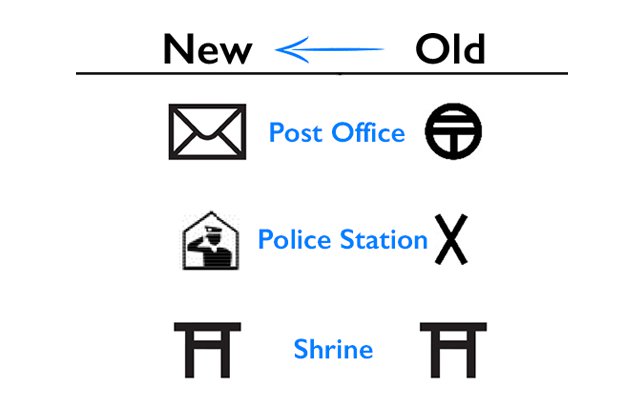- Source:
- gsi
Related Article
-

Transform Your Hole-Ridden Socks Into Stylish One-Of-A-Kind Gems
-

Japanese Twitter user and son take advantage of rare Tokyo snowfall to craft cat crime scene
-

Professional Anime Artist Turns His Sons’ Sketches Into Amazing Anime Characters
-

Wow, Pikachu Has Really Let Himself Go
-

Cold Stone Creamery Japan Will Be Serving Kick-Ass Powerpuff Girls-Themed Drinks This Summer
-

First Ever Frozen Coca-Cola Packs Released in Japan



Japan is no doubt one of the most visited countries for tourists. The rich culture and advanced technologies surprises foreigners like they belong in a world that everything somehow are less appealing or downgraded perhaps. It’s quiet hard for countries to continue with their future steps while keeping their own traditions, but Japan balance it perfectly. The 2020 Olympics are coming in just a few years, so Japanese government has been preparing different welcoming-ways to host foreigners by changing old picture signs that only Japanese citizens recognized.
gsi
Just last week, the Geospatial Information Authority of Japan (GSI) officially finalized 15 pictograms that will begin to be integrated into maps. Most of the changes became more modernized and understandable, but the cool-looking postal code sign 〒 will instead become an envelope, similar to that of an e-mail emoji.
As for the 卍 temple sign, it will remain unchanged, although it was often confused for the Nazi swastika and many foreigners had urged Japan to redesign it. But the government has decided to educate tourists about its history and meaning instead of making a brand new one.
Based on redesigning research:
gsi
Those who said the first picture looks like the sign of the Nazi swastika included 7 people from various countries. (Italy, Switzerland, America, Canada, Australia [2], Philippine)
The sign is known as highly related to both Buddhism and Hinduism religion and has been used for thousands of years, even in India. A lucky charm protecting people from evil and it can be seen on most automobiles and trucks, especially more often at Hindu religious ceremonies and festivals. With the Olympics approaching, Japan may find itself in a difficult position of balancing putting emphasis on accommodating foreign visitors, while maintaining traditional aspects of its culture.